The entire global health community—faculty and students alike—benefit from the exceptional diversity and wealth of experiences and perspectives brought by international scholars. And they all share one common goal—enriching the lives of others through learning.
Collaborative research between Southern Medical University (SMU) and UNC Chapel Hill remains resilient, despite complex relations between the U.S. and China. This includes UNC Project-China’s Visiting Scholarship Program in Chapel Hill, now in its fourth year, led by Weiming Tang, PhD, co-director of UNC Project-China through the UNC Institute for Global Health & Infectious Diseases.
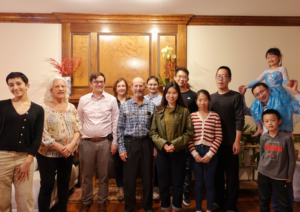
Established in 2019, UNC Project-China’s Visiting Scholarship Program officially started in 2020. The program is now preparing to welcome the fourth cohort of students.
“During COVID-19, when many academic exchange programs between China and the U.S. were suspended, we were committed to ensuring this collaboration continued,” said Tang, associate professor in infectious diseases.
“Young Chinese researchers who spend time in the US, form professional relationships upon returning to China. Some scholars may be collaborators of our research groups, while others come to learn in new areas of study. All bring a unique perspective and diverse knowledge base that complements existing research programs. SMU and UNC-Chapel Hill researchers need this opportunity for cooperation now more than ever.”
Ziyang Yang, is a second-year student focused on direct cardiac reprogramming, mentored by Li Qian, PhD, associate professor in the Department of Pathology and Laboratory Medicine and associate director of the McAllister Heart Institute.
“This program has helped me build up a comprehensive way of thinking about how to design, manage and conduct fundamental biological research,” explained Yang. “It has been challenging in a meaningful and enjoyable way and has advanced my professional goals.”
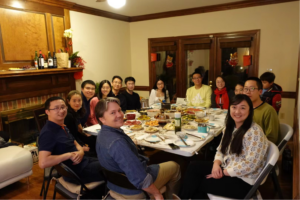
Program Requirements
Every February, candidates apply for the program through SMU, and UNC accepts up to eight participants from SMU per academic year. Then, the UNC Project-China office interviews eligible candidate and matches them with UNC mentors.
“We’ve just finished interviews and the match process, and will soon start the VISA process, with a plan to welcome new scholars to the UNC campus in January 2024,” Tang said.
Visiting scholars familiarize themselves with a different academic context, access different people and events, and most importantly, have meaningful discussions about important research topics of mutual interest.
“Working in collaboration with our research scholars on specific projects, visiting scholars ensure a vibrant exchange of ideas and facilitate the development of innovative methodological approaches. The program is designed for those scholars who wish to focus on a specific research area.”
Length of Stay
Visiting scholars come to North Carolina for up to one year. The program also accepts short-term scholars, who visit for 6 months or less. A short-term scholar is a professor or research scholar, or someone with similar education and or experience. Participants might collaborate on special research projects, teach a semester at a college or university, or consult/observe various settings in education and research in the U.S.
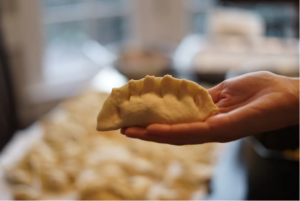
Visiting Students Share their Experiences
Qing Dan (Year 1) Radiology, Maternal/Fetal Health
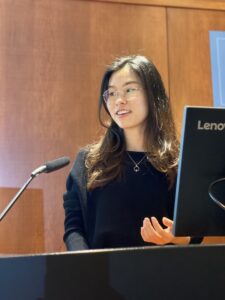
“I worked with a multi-disciplinary research group focused on improving maternal and fetal health in resource-limited settings using obstetric ultrasound and deep learning, carried out in Chapel Hill and Lusaka, Zambia. It provided a multi-center perspective on how deep learning can promote maternal and fetal health in both high-income countries and low-income countries. I loved and appreciated this exchange program. It has changed my career dreams and plans immensely, and my values towards life, since I stepped into global health. The impact of the SMU-UNC exchange program will be long-lasting. Joining Dr. Jeff Stringer and his team dramatically altered my career development. I no longer want to work in a city my whole life. I long for Africa and want to continue projects that can make contributions to global radiology, in terms of clinical practice, research, and education. Currently, I’ve started my three-year residency program in ultrasound in China.”
Shuo Han (Year 1) Pharmacy, Colorectal Cancer
“I visited the Eshelman School of Pharmacy under the guidance of Dr. Leaf Huang, a professor in the Department of Biomedical Engineering. I studied the biological function and mechanism of long noncoding RNAs in colorectal cancer. Being in the program greatly improved my English, and I learned how to conduct research on nano lipid particles. It also improved my ability to live independently and broadened my horizons while enabling me to learn new research methods for cancer-related research. I learned the role and mechanism of different vectors in targeting oncogenes, and I wrote a related review published in Acta Pharmaceutica Sinica B. I am deeply impressed by UNC’s care for students and Professor Leaf Huang’s rigorous research attitude. I feel grateful to participate in this project, which will benefit me a lot in the future.”
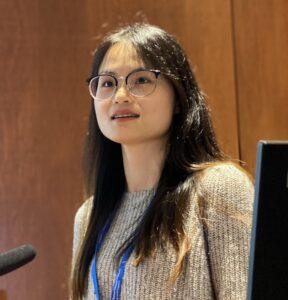
Shuqin Gu (Year 1) Infectious Diseases
“My interests revolve around the immunology of Hepatitis B virus infection and the development of vaccines for infectious diseases. Currently, I’m working on projects related to syphilis, influenza, and HBV, with a focus on identifying crucial epitopes and expressing antibodies for structural and functional studies, as well as for use in passive protection animal studies and the development of vaccine candidates. I had the privilege of working with Dr. Tony Moody, a professor of pediatrics at Duke, on syphilis and influenza projects, and I acquired necessary skills for antibody screening and production at the Duke Human Vaccine Institute. I’m grateful for Dr. Moody’s guidance, which has allowed me to pursue my doctoral studies focused on the potential therapeutic antibodies for a Hepatitis B functional cure. I’d also like to express my gratitude for the cooperation project between UNC and Southern Medical University, which gave me the opportunity to pursue my passion and interests in the U.S. My hope is to be able to take my research from the laboratory to the clinic in the near future.”
Xiaoting Liang (Year 2) Radiology, Squamous cell carcinoma
“I hope to explore the pathogenesis of skin squamous cell carcinoma, find more effective therapeutic targets, and provide new ideas for treatment. Our study, guided by Dr. Zibo Li, a professor in the Department of Radiology, suggested that LncRNA-ERSR (long noncoding RNA) may play a role in tumors by regulating apoptosis under endoplasmic reticulum stress. I hope I will be able to further show, for the first time in cutaneous squamous cell carcinoma, how LncRNA-ERSR promotes tumor development by regulating DIDIT3-mediated apoptosis. Through this program, I have gained new skills, knowledge, and experiences that have been instrumental in my personal and professional growth. Being exposed to different working environments, cultures, and practices has broadened my perspectives and improved my problem-solving and communication skills. Overall, this program has provided me with a unique and valuable experience that has contributed to my personal and professional growth.”
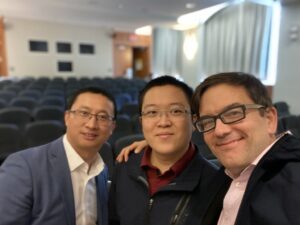
Cong Xu (Year 2) Radiology, Rheumatoid Arthritis
“Participating in this program has definitely deepen my understanding of arthritis diseases. My research focuses on macrophage regulation for rheumatoid arthritis treatment. Macrophages play a crucial role in the pathophysiological responses in the inflammation process, and understanding this particular mechanism will shed a new light on curative approaches for treating arthritis diseases. Working with Dr. Zibo Li, I’ve discovered new directions in scientific research. I would like to become an ultrasound doctor, specializing in the musculoskeletal system. With good training in molecular biological mechanisms and medical imaging at UNC, I am confident that I will be more competitive and have a much better chance in China to reach my goal.”
